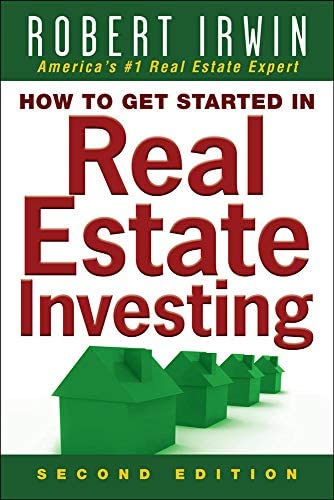
Real estate and stocks are both excellent investment vehicles, but each has its own set of advantages and disadvantages. Here are some key differences between the two: Liquidity, Risks, Location, and Profits. Real estate investments may be better for people who want to earn a passive income stream in the long term. Real estate offers passive income streams as well as the possibility of substantial appreciation. Stocks on the other side are susceptible to inflation, market, and economic risks. Although stocks can be bought or sold quickly, they do not require large cash investments.
Profits
Real estate investment has many benefits. For starters, real estate can create cash flow. Cash flow is the money that is left over after expenses are paid. Rental income is a great way to offset expenses and make extra money. Cash flow is stronger the longer you have a property. Additionally, you can take advantage of a variety of tax breaks and deductions for real estate. These tax breaks can include deducting reasonable expenses related to ownership or operation.
Real estate investment offers flexibility, which many investors want. You can gradually build up your portfolio and supplement your income by renting out the rental income. Fixed-and-flip profits can also be your main source income. You can also manage your property on your own terms, allowing you to be flexible and free. Plus, you are your own boss. You are in control of your work hours and you have no salary limitations.

Risks
Real estate investing is more risky than stocks. It is important that you understand the differences. Real estate is more stable than stocks. Real estate has a lower risk of capital loss because the land you own is collateral for your initial investment. Stocks are less liquid and can be withdrawn at any moment. Additionally, dividends can be a source of income for stocks. Investors should be aware that stock prices can fluctuate and could cause investors to make emotional decisions.
You will need to wait longer for your return to make a difference. Stocks can earn a 10% annual return, while realty returns 3 to 4 percent. The annual return on real estate is 20% if you pay at least 20% down on the property. This is significantly higher than stock returns. You may also find it difficult to find properties of good value and then sell them at a lower price than what you paid. Additionally, if you are unable to sell your property in the required timeframe, you could be subject to a tax penalty, which is often higher than the market's average return.
Liquidity
The ease an investor can convert his investment into cash is called liquidity. Stocks offer more liquidity than real-estate investments due to their availability during market hours. It may take some time to sell all of your stock positions, but investors have the ability to get their money whenever and wherever they like. Real estate investments, on the other hand, are more liquid and may not appreciate as quickly as stocks.
Another benefit of real estate investing is that returns come from income instead of capital gains. This makes the process more automated. The income component automatically grows with inflation. This allows investors to spend their real-estate profits faster. Another benefit of investing in real estate is that it is less volatile. Withdrawals from this type of investment are more secure, and less likely to be affected short-term volatility. No matter what your preferences are, there is a strategy to suit you.

Location
Direct investing in real estate is not for everyone. You should still consider real estate if you wish to have a balanced portfolio. The stock market is easy and simple to navigate. Also, investing directly in real estate is far less risky and more profitable than investing in index funds. Here are some tips for investors who are considering real estate investments.
FAQ
Do I need a mortgage broker?
Consider a mortgage broker if you want to get a better rate. Brokers are able to work with multiple lenders and help you negotiate the best rate. Some brokers earn a commission from the lender. Before you sign up, be sure to review all fees associated.
How much money can I get to buy my house?
This can vary greatly depending on many factors like the condition of your house and how long it's been on the market. Zillow.com reports that the average selling price of a US home is $203,000. This
Is it better buy or rent?
Renting is generally cheaper than buying a home. It's important to remember that you will need to cover additional costs such as utilities, repairs, maintenance, and insurance. The benefits of buying a house are not only obvious but also numerous. You'll have greater control over your living environment.
What is the maximum number of times I can refinance my mortgage?
It all depends on whether your mortgage broker or another lender is involved in the refinance. You can typically refinance once every five year in either case.
How much money should I save before buying a house?
It depends on how much time you intend to stay there. It is important to start saving as soon as you can if you intend to stay there for more than five years. If you plan to move in two years, you don't need to worry as much.
What are the top three factors in buying a home?
The three most important things when buying any kind of home are size, price, or location. Location is the location you choose to live. Price refers to what you're willing to pay for the property. Size refers the area you need.
What are the chances of me getting a second mortgage.
Yes. However, it's best to speak with a professional before you decide whether to apply for one. A second mortgage is typically used to consolidate existing debts or to fund home improvements.
Statistics
- Based on your credit scores and other financial details, your lender offers you a 3.5% interest rate on loan. (investopedia.com)
- When it came to buying a home in 2015, experts predicted that mortgage rates would surpass five percent, yet interest rates remained below four percent. (fortunebuilders.com)
- This seems to be a more popular trend as the U.S. Census Bureau reports the homeownership rate was around 65% last year. (fortunebuilders.com)
- It's possible to get approved for an FHA loan with a credit score as low as 580 and a down payment of 3.5% or a credit score as low as 500 and a 10% down payment.5 Specialty mortgage loans are loans that don't fit into the conventional or FHA loan categories. (investopedia.com)
- Some experts hypothesize that rates will hit five percent by the second half of 2018, but there has been no official confirmation one way or the other. (fortunebuilders.com)
External Links
How To
How to Locate Real Estate Agents
A vital part of the real estate industry is played by real estate agents. They offer advice and help with legal matters, as well selling and managing properties. Experience in the field, knowledge of the area, and communication skills will make a great real estate agent. Look online reviews to find qualified professionals and ask family members for recommendations. Local realtors may also be an option.
Realtors work with residential property sellers and buyers. A realtor's job it to help clients purchase or sell their homes. A realtor helps clients find the right house. They also help with negotiations, inspections, and coordination of closing costs. A commission fee is usually charged by realtors based on the selling price of the property. However, some realtors don't charge a fee unless the transaction closes.
The National Association of Realtors(r), (NAR), has several types of licensed realtors. NAR members must pass a licensing exam and pay fees. Certification is a requirement for all realtors. They must take a course, pass an exam and complete the required paperwork. NAR has set standards for professionals who are accredited as realtors.